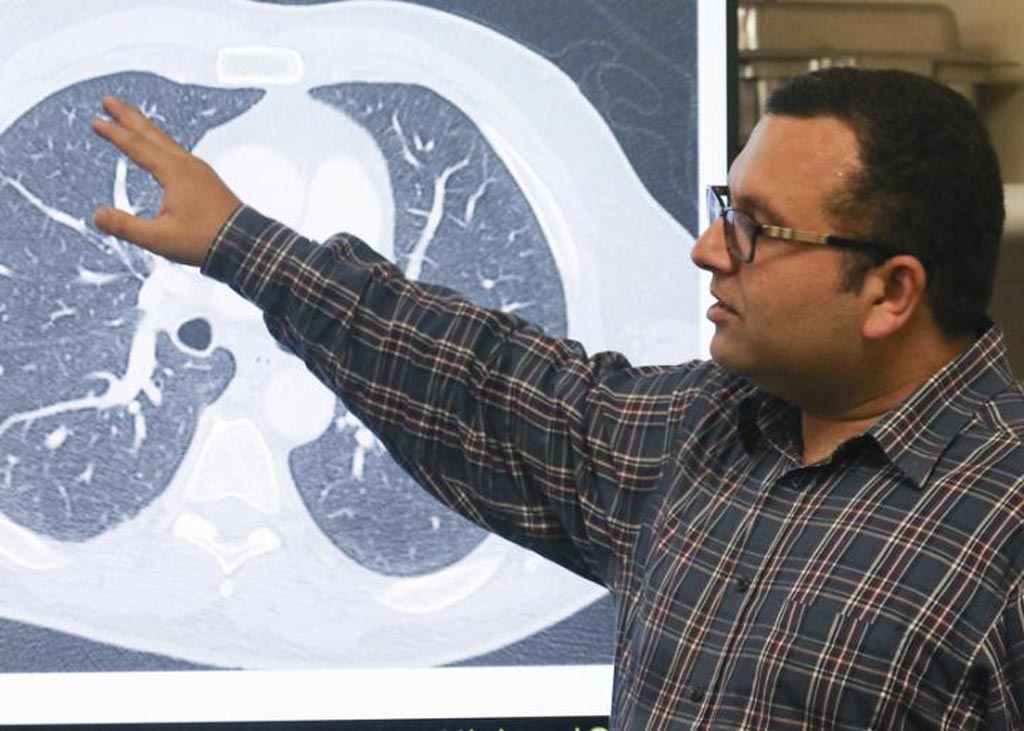AI System Accurately Detects Lung Cancer in CT Scans
By MedImaging International staff writers
Posted on 05 Sep 2018
Engineers from the University of Central Florida's Computer Vision Research Center (Orlando, FL, USA) have developed an artificial intelligence (AI) system which can detect tiny specks of lung cancer in CT scans. Radiologists find it difficult to identify such tiny tumors and have an accuracy of 65%, while the AI system has an accuracy of about 95%, according to the engineers.Posted on 05 Sep 2018
In order to teach the computer to look for the tumors, the scientists fed more than 1,000 CT scans into the software and used the same kind of algorithms, which are utilized by facial-recognition software to scan thousands of faces in search of a particular pattern and find a match. The computer was taught to ignore other tissue, nerves and other masses found in the CT scans and analyze lung tissues.

Image: Assistant Professor Ulas Bagci leads the group of engineers at the University of Central Florida that have taught a computer how to detect tiny specks of lung cancer in CT scans, which radiologists often have a difficult time identifying. The artificial intelligence system is about 95 percent accurate, compared to 65 percent when done by human eyes, the team said (Photo courtesy of the University of Central Florida, Karen Norum).
"We used the brain as a model to create our system," said Rodney LaLonde, a doctoral candidate. "You know how connections between neurons in the brain strengthen during development and learn? We used that blueprint, if you will, to help our system understand how to look for patterns in the CT scans and teach itself how to find these tiny tumors."
The researchers are now fine-tuning the AI's ability to identify cancerous versus benign tumors and also study if they can develop another AI system to help identify or predict brain disorders.
"I believe this will have a very big impact," said engineering assistant professor Ulas Bagci who led the group of researchers at the center, which focuses on AI with potential medical applications. "Lung cancer is the number one cancer killer in the United States and if detected in late stages, the survival rate is only 17%. By finding ways to help identify earlier, I think we can help increase survival rates."
Related Links:
University of Central Florida Computer Vision Research Center













